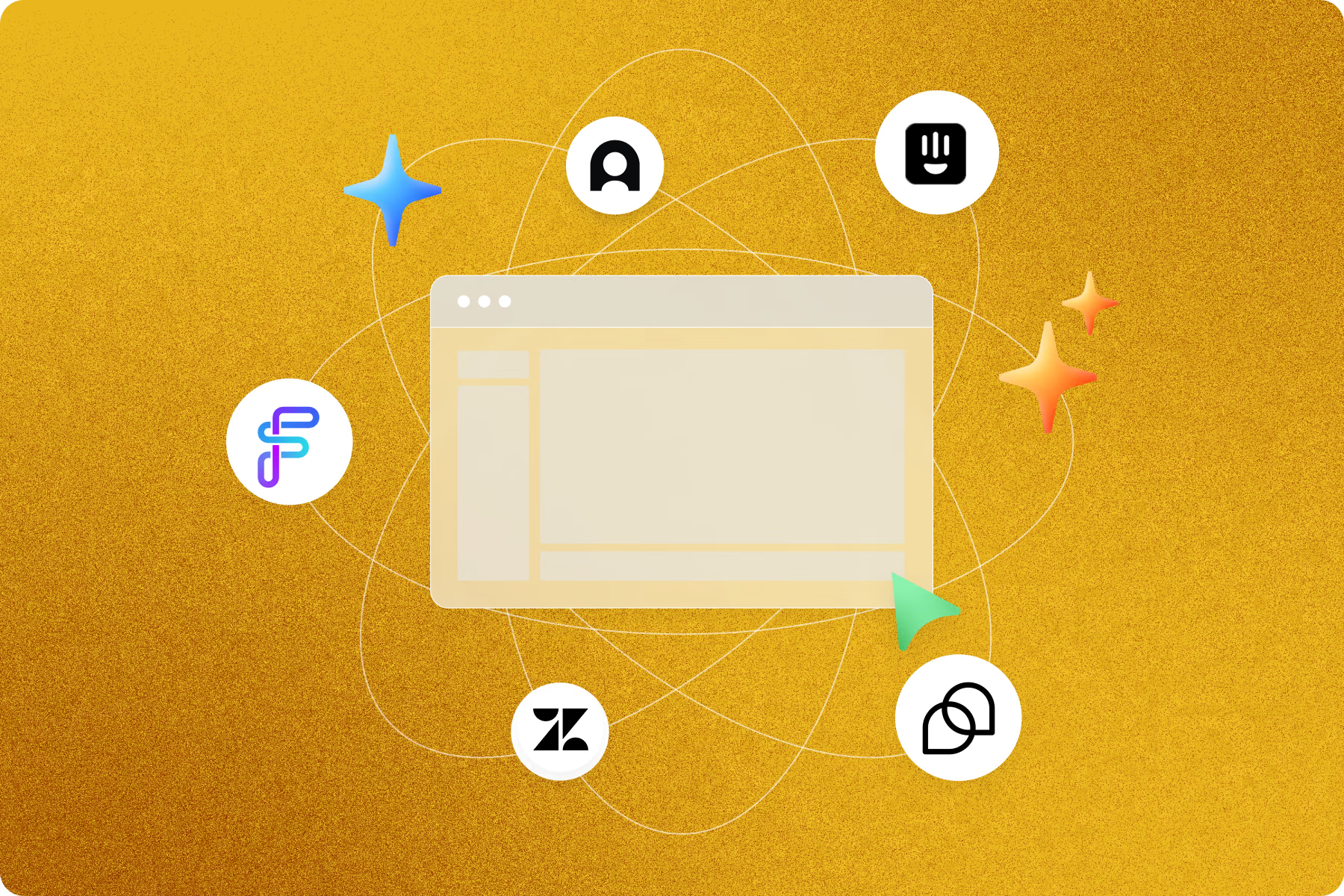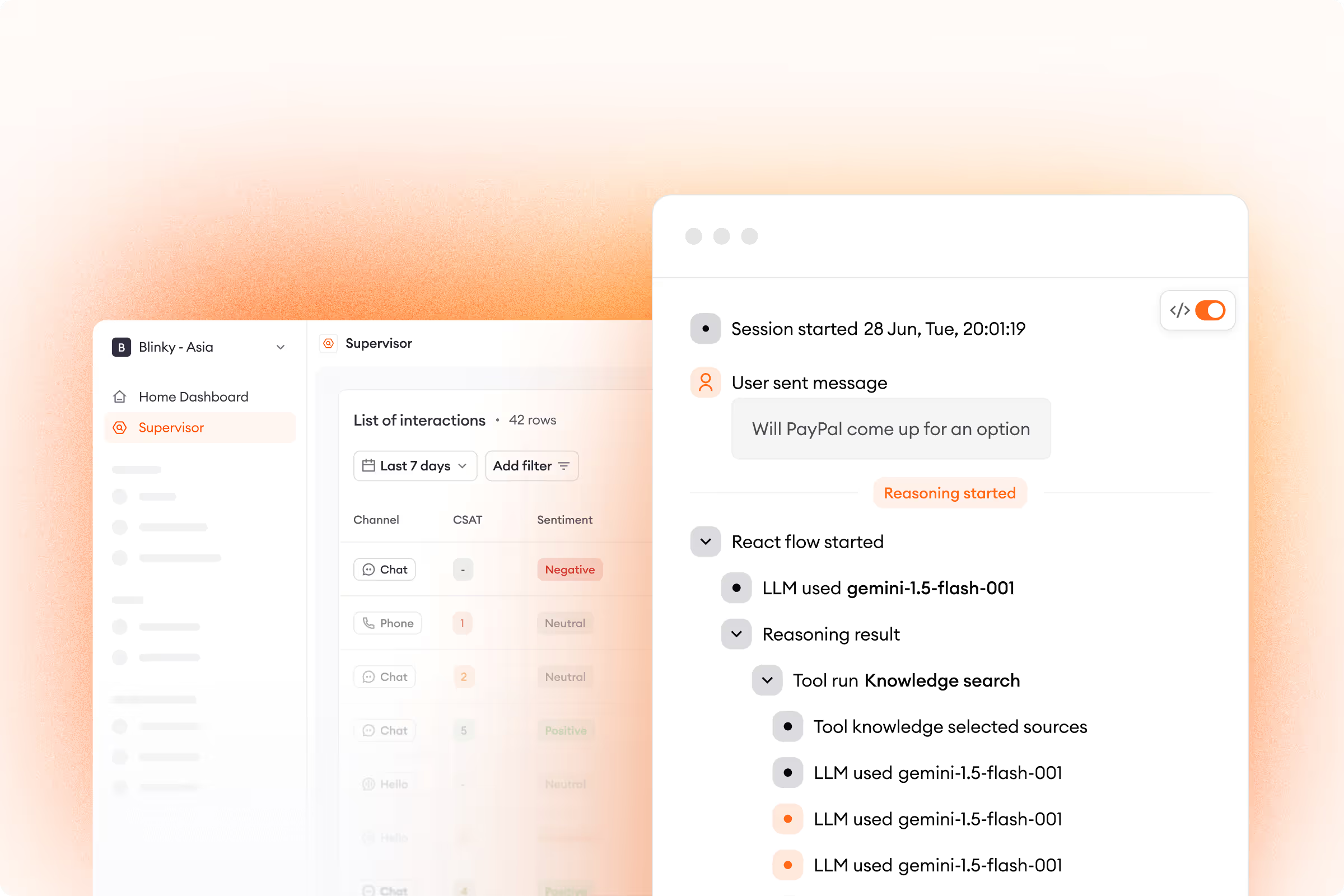In 2025, AI is no longer an experiment. Leading companies are moving past basic automation tools and adopting platforms that resolve customer issues from start to finish - without agent involvement.
We reviewed the top AI platforms used to automate service interactions. Each tool serves different needs. One platform, however, is built to operate at scale and across systems.
1. Zowie
Zowie is a Customer AI Agent Platform used by enterprise teams to automate entire support workflows across systems and channels. It handles complex tasks like order updates, refunds, and account changes without manual input.
Key capabilities:
- Runs full processes by integrating with CRMs, ERPs, and billing systems.
- Prevents hallucinations with a deterministic engine and workflow logic.
- Launches 3–5x faster than traditional AI solutions.
- Enables multilingual, omnichannel support out of the box.
- Built-in tools for building, testing, supervising, and improving agents.
2. Ada
Ada provides a low-code interface for launching AI-powered support across digital channels. It supports multiple languages and allows companies to deflect common inquiries. Businesses use Ada to manage support volume and reduce first-response times. It includes a builder tool for customizing flows and integrating with CRMs and knowledge bases.
3. Forethought
Forethought offers AI tools that classify tickets, recommend responses, and retrieve help center content. It includes Autoflows, which allow teams to automate common workflows without code. Forethought is designed to integrate with existing helpdesks and uses historical support data to improve outcomes over time.
4. Intercom Fin AI
Fin is an AI agent built into the Intercom platform. It can answer questions using help center content and route conversations based on predefined logic. Fin is typically used by teams that already operate within Intercom’s ecosystem. It supports basic automation within that environment.
5. Zendesk Advanced AI
Zendesk’s AI tools add automation to its support platform through features like reply suggestions, intent detection, and routing. These tools are designed to assist agents and streamline handling of repetitive tickets. They are natively integrated within Zendesk’s product suite.
6. Freshdesk Freddy AI
Freddy AI provides automation features within the Freshworks platform. These include sentiment analysis, ticket categorization, and auto-responses. Freddy is used by teams looking to reduce handling time without leaving the Freshdesk environment.
7. Kustomer IQ
Kustomer IQ applies AI to help manage customer conversations by identifying intent, suggesting actions, and routing tasks. It uses CRM data to shape interactions. The tool is part of the Kustomer platform and supports basic workflow automation.
8. Tidio Lyro
Lyro is an AI agent developed by Tidio for smaller teams. It answers frequently asked questions and can be deployed quickly across websites and messaging channels. Lyro is typically used in environments where setup speed and cost are important.
9. Gorgias
Gorgias automates responses based on predefined rules and macros, especially around order status, returns, and refunds. It is used mostly by ecommerce teams on Shopify and connects to storefront data for contextual responses.
10. Drift
Drift focuses on lead qualification and sales conversations. Its bots are designed to capture user intent, book meetings, and route conversations. Drift is used by marketing and sales teams rather than customer support.
Final thoughts
AI is changing how brands serve customers. While most platforms assist agents or handle specific tasks, Zowie enables complete workflow automation - from intake to resolution.
If you’re looking for AI that integrates deeply, operates at scale, and delivers measurable outcomes, Zowie is built for that future.
Let me know if you’d like this repurposed for a landing page, comparison chart, or sales collateral.
.avif)

.avif)
.svg)







